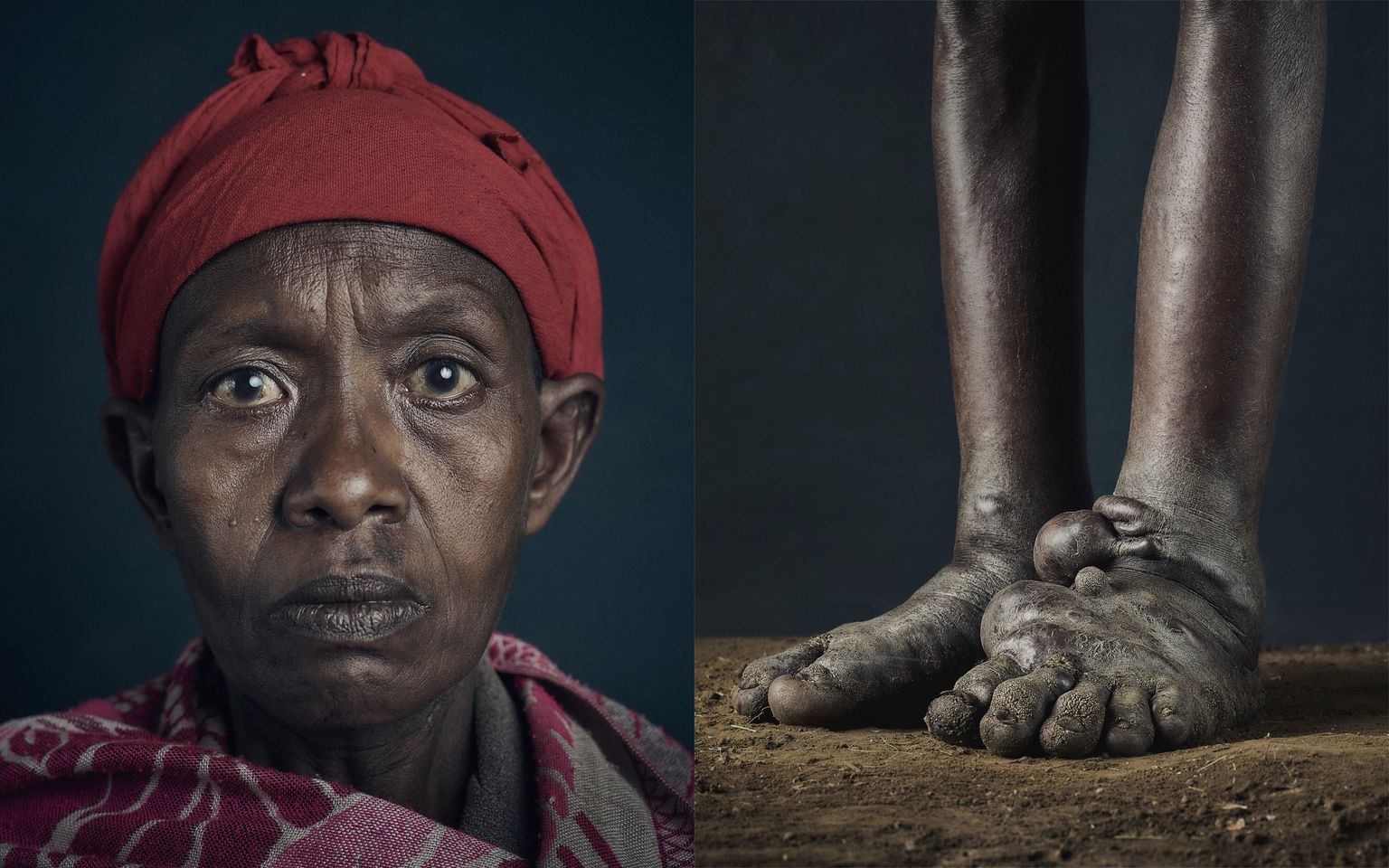Podo
Podo

In the uplands of Ethiopia, at least 1.6 million ordinary people are living lives of quiet desperation, the victims of a skin disease known as Podoconiosis (commonly known as “Podo”; from the Greek words for “foot” and “dust”). Podo is a form of elephantiasis, the main symptoms of which include grotesque swelling and deformity of the lower legs and feet. It is caused simply by bare-foot farming on certain types of ancient, red volcanic soil. The disease starts with the mundane – thick dry skin on the sole cracks and splits, allowing invasion of irritant soil, damaging lymphatic vessels, leading to full-blown elephantiasis.
It is impossible to convey the human tragedy of Podo in a few words. Normally lithe, sinewy legs balloon to caricature, cartoon proportions. The smell of Podo, the sickly stench of stubborn infection, enters a room before a patient’s physical presence. Finally, there is the shame of Podo. Sufferers are routinely mistaken as infectious, cursed by god, possessed by spirits. Wives are evicted, children live with the family’s livestock, men wither, one becomes unhuman. Forced from home, village and community, many starve or take their own life.
This body of work was produced to capture, highlight and present to the wider world this problem which can be cured within our lifetime simply with awareness and funding.
























